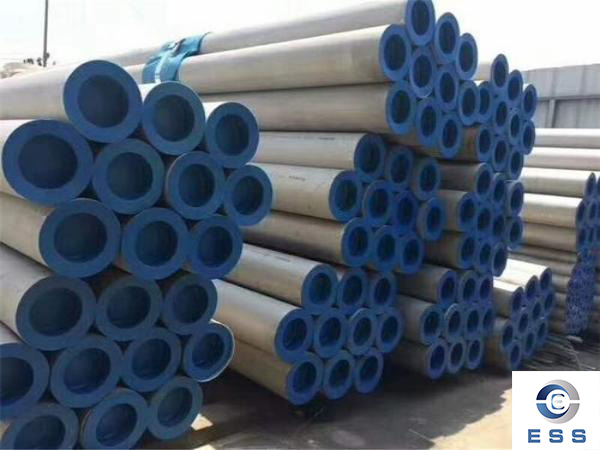Thermal conductivity of carbon steel pipe

The thermal conductivity of carbon steel pipe refers to the ability of the pipe material to conduct heat. Generally speaking, pipes with good thermal conductivity can transport fluids more efficiently. The thermal conductivity of carbon steel pipe is related to factors such as its material, thickness, surface morphology, and ambient temperature.
Carbon steel pipe is a pipe material commonly used to transport fluids. Due to its high strength, corrosion resistance and low cost, it is widely used in petroleum, chemical industry, pharmaceuticals, food processing, construction and other fields.
Features of carbon steel pipe
1. Good thermal conductivity
Because carbon steel pipe have a high thermal conductivity, they are very efficient at conducting heat. Therefore, carbon steel pipes are widely used in many industries, such as construction, machinery manufacturing, petrochemical industry and other fields.
2. Low thermal expansion coefficient
The thermal expansion coefficient of carbon steel pipe is relatively low and can well maintain its shape and structural stability, making it more stable in high-temperature environments.
3. Strong corrosion resistance
Since carbon steel pipes are usually galvanized or spray-coated, their corrosion resistance can be effectively improved, allowing them to be used for a long time in humid or chemical environments. Moreover, the relatively low cost of carbon steel pipe is one of the reasons why it is widely used.
Thermal conductivity of carbon steel pipe
The thermal conductivity of carbon steel pipe is an important parameter indicating the thermal conductivity of pipe materials. The unit is W/m·K. It represents the heat passing through a pipe with a cross-sectional area of 1 square meter per second. When the temperature difference is 1 degree, the thermal conductivity ability . Generally speaking, the greater the thermal conductivity of the material, the higher the heat transfer efficiency. The thermal conductivity of carbon steel pipe is relatively good, also because carbon steel itself has high thermal conductivity.
Different types of carbon steel pipe also have different thermal conductivities. The thermal conductivity of carbon steel pipe is usually between 30~60W/m·K. In addition, the thermal conductivity of carbon steel pipe will also be affected by factors such as pipe wall thickness, surface finish, medium type, and ambient temperature.
Calculate the thermal conductivity of carbon steel pipe
The thermal conductivity of carbon steel pipe is usually between 30-60W/mK, which means that carbon steel pipe can transfer heat quickly. The thermal conductivity of carbon steel pipe needs to be calculated based on specific conditions. Generally speaking, the thermal conductivity of conventional seamless carbon steel pipe is 50 W/m·K, and the thermal conductivity of conventional welded carbon steel pipe is about 30 W/m·K.
For a specific carbon steel pipe, its thermal conductivity can be determined experimentally or predicted through theoretical calculations. Common theoretical calculation methods include uniform medium heat transfer process, inhomogeneous medium heat transfer process, convection heat transfer and other methods.
Summary
The thermal conductivity of carbon steel pipe is a key parameter that affects the heat transfer efficiency of fluids in the pipes. Different types of carbon steel pipe have different thermal conductivities, and many factors need to be considered when calculating the thermal conductivity. In practical applications, appropriate pipe materials and thicknesses need to be selected according to specific working conditions.
Read more: Difference between mild steel pipe and carbon steel pipe or What Affects the Thermal Conductivity of Carbon Steel Pipes?













 Eastern Steel Manufacturing Co.,Ltd not only improve product production and sales services, but also provide additional value-added services. As long as you need, we can complete your specific needs together.
Eastern Steel Manufacturing Co.,Ltd not only improve product production and sales services, but also provide additional value-added services. As long as you need, we can complete your specific needs together.










